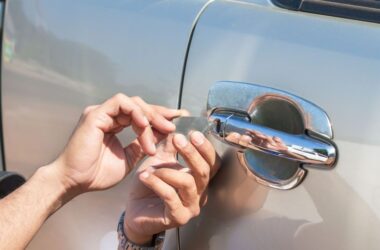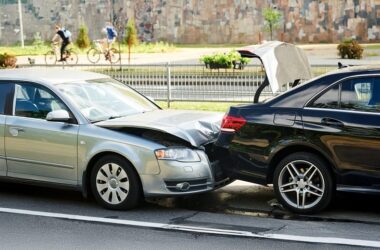In recent years, leasing has become an increasingly popular alternative to car ownership in Singapore. With its appeal of lower monthly costs and access to newer models, many drivers are choosing this route instead of committing to a full vehicle purchase. However, despite its clear benefits, it’s crucial to understand the potential drawbacks before signing any agreements. One particular concern that often surfaces is the long-term financial implications of car leasing long-term, especially when compared to outright ownership.
Understanding the Basics of Car Leasing
Car leasing in Singapore typically involves an agreement where the lessee pays to use a vehicle for a fixed period. These leases can range from short-term contracts, such as a 12-month car lease, to longer durations. In exchange, users enjoy driving a relatively new vehicle without the full burden of ownership, such as resale responsibilities or significant maintenance costs.
While leasing might seem like a flexible and hassle-free option, it’s not without its disadvantages. Hidden fees, contractual limitations, and lack of asset ownership are just a few of the issues that should be carefully examined.
Financial Commitment Without Ownership
One of the most significant downsides to leasing is the fact that you’re paying monthly for something you will never own. Unlike financing a car purchase, where you eventually acquire the vehicle, leasing is essentially a long-term rental. Over time, these payments can add up to a considerable amount, especially with car leasing long-term contracts that span several years.
For example, after three to five years of continuous leasing, you may have spent tens of thousands of dollars and still be without a tangible asset. This can be particularly disadvantageous if you intend to drive a vehicle for many years.
Limitations on Customisation and Use
Another drawback of leasing is the restrictions imposed by the lease agreement. Lessees are often bound by mileage limits and usage conditions. Exceeding the allowed mileage can lead to costly penalties, and damages beyond normal wear and tear might incur additional charges.
This becomes especially restrictive for families or professionals who use their vehicles frequently for travel. Even minor accidents or cosmetic issues may result in extra expenses. Additionally, leasing does not allow for custom modifications, which can be a deal-breaker for car enthusiasts.
Short-Term Leases May Be Costlier Over Time
Opting for a 12-month car lease may seem appealing for those needing temporary transportation or wanting to try a new vehicle. However, shorter leases tend to come with higher monthly rates. Over time, repeatedly renewing short leases can end up being more expensive than either a long-term lease or purchasing a car outright.
Moreover, frequent short-term leases mean regularly switching vehicles and contracts, which could also bring about additional administrative costs and the hassle of searching for new deals repeatedly.
Residual Value and End-of-Lease Charges
A common oversight in car leasing agreements is the residual value, or the estimated value of the car at the end of the lease. This plays a significant role in determining your monthly lease payments. If the residual value is miscalculated or overly optimistic, you could end up paying more than the car’s depreciation truly warrants.
Additionally, at the end of your lease term, you may be faced with wear-and-tear charges or required to pay for any discrepancies in vehicle condition. Some contracts are very strict, and even minor dings or upholstery stains can lead to costly repairs, which are often non-negotiable.
The Issue With Mid-Term Lease Breaks
Situations change—jobs shift, families grow, or priorities realign. Unfortunately, breaking a car lease early can be complicated and financially punishing. Whether it’s a 24-month car lease or a longer duration, early termination typically involves paying hefty penalties. These can include paying off the remaining months in full or additional fees that negate the initial financial benefit of leasing.
Such rigid conditions mean that you must be highly confident in your plans and financial stability before entering into a lease agreement. Unlike owning a car, which you can sell if necessary, a lease limits your exit options.
Leasing Isn’t Ideal for High-Usage Drivers
For those who clock in high mileage—like private-hire drivers, sales professionals, or weekend adventurers—leasing may not be practical. Many leases come with a mileage cap, and exceeding it can incur high surcharges. Even a modest monthly excess can snowball into a significant cost at the end of your lease.
This is where owning a vehicle becomes more favourable, as it allows unrestricted usage without the looming concern of penalties or hidden costs, particularly when paired with efficient fuel consumption and minimal maintenance.
Comparing Long-Term Leasing to Car Ownership
Let’s say you’ve entered a 24-month car lease. Over the two years, you pay a fixed monthly rate with minimal upfront costs. The car is reliable and new, but at the end of the contract, there’s nothing to show for it. In contrast, buying a car involves higher upfront costs and depreciation, but you gain a tangible asset that you can sell, keep, or use as trade-in value in the future.
In the long run, car ownership may be more cost-efficient for drivers who prefer staying with one vehicle for several years, even if leasing initially seems more affordable.
Conclusion
While car leasing offers flexibility, convenience, and access to newer models, it is not without significant drawbacks. The absence of ownership, contract limitations, and long-term costs make it a less attractive option for some Singaporean drivers. Understanding these cons—particularly when it comes to car leasing long-term—can help you make a well-informed decision that aligns with your financial and lifestyle needs.
Before committing to a 12-month car lease or a 24-month car lease, take the time to evaluate your driving habits, budget, and long-term goals. Contact Eurokars Leasing today to find out more about the most suitable car solutions for your lifestyle in Singapore.










